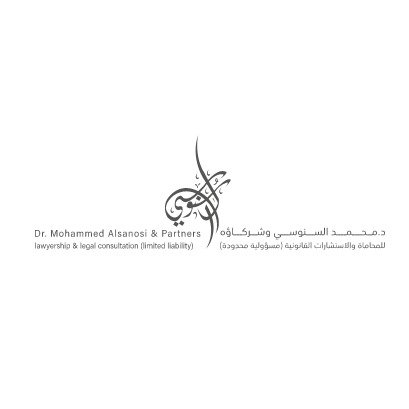Best Energy Regulatory Law Lawyers in Jeddah
Share your needs with us, get contacted by law firms.
Free. Takes 2 min.
List of the best lawyers in Jeddah, Saudi Arabia

About Energy Regulatory Law in Jeddah, Saudi Arabia
Energy Regulatory Law in Jeddah, Saudi Arabia governs the production, distribution, transmission, and consumption of energy resources such as electricity, gas, and renewable energy. The country has made significant investments in diversifying its energy sector, focusing strongly on regulations to ensure compliance with international standards and sustainable practices. Jeddah, as a major commercial hub, is subject to national energy regulations as well as enforcement at the municipal level. Saudi Arabia’s Vision 2030 initiative accelerates the move towards renewable energy and tighter regulatory control, making energy compliance increasingly essential for all stakeholders in Jeddah.
Why You May Need a Lawyer
Navigating the complex field of Energy Regulatory Law in Jeddah can be challenging for individuals and businesses alike. Some common reasons you might need specialized legal assistance include:
- Negotiating and drafting energy contracts, including power purchase agreements and supply deals.
- Ensuring compliance with local and national energy regulations for projects or operations.
- Obtaining permits and licenses for energy production, distribution, or renewable energy projects.
- Resolving disputes involving energy rates, infrastructure, or regulatory breaches.
- Advising on joint ventures or investments in the energy sector, especially with foreign partners.
- Handling environmental compliance and sustainability requirements linked to energy production.
- Managing investigations and responding to audits performed by regulatory bodies.
Given the significant legal and financial risks associated with non-compliance, having a knowledgeable energy law attorney can help protect your interests, avoid penalties, and successfully navigate regulatory processes.
Local Laws Overview
Energy Regulatory Law in Jeddah is based on national legislation adopted by the Kingdom of Saudi Arabia, primarily under the supervision of the Ministry of Energy, the Electricity and Co-Generation Regulatory Authority (ECRA), and the Saudi Energy Efficiency Center (SEEC). Key aspects include:
- Licensing Requirements: Any party involved in generating, transmitting, or distributing energy must secure licenses according to Saudi law.
- Tariff Setting: Energy prices, especially electricity and gas, are regulated by ECRA and subject to change based on government policy and international benchmarks.
- Renewable Energy Incentives: Regulations are in place to encourage the private sector to invest in solar, wind, and other renewables, in line with Vision 2030 goals.
- Environmental Compliance: Projects must adhere to environmental regulations set forth by the Ministry of Environment, Water and Agriculture, including emissions and waste management.
- Dispute Resolution: ECRA provides mechanisms for handling complaints and disputes between consumers, providers, and governmental agencies.
- Foreign Investment: Special rules and clearances apply to foreign investors participating in energy projects in Saudi Arabia.
It is important to stay updated with ongoing reforms, as Saudi energy legislation can evolve rapidly in response to global and national needs.
Frequently Asked Questions
What is the main regulatory authority for energy in Jeddah?
The Electricity and Co-Generation Regulatory Authority (ECRA) is the primary regulatory body overseeing energy activities, along with the Ministry of Energy.
Do I need a license to set up a solar energy project in Jeddah?
Yes, all energy projects, including solar, require appropriate licensing and approval from relevant governmental authorities before operations can begin.
Are there incentives for investing in renewable energy in Saudi Arabia?
Yes, there are specific incentives and frameworks to encourage investment in renewables, especially to support Vision 2030 targets.
What are the penalties for operating without proper licenses?
Penalties can include heavy fines, suspension of operations, and even criminal prosecution in certain cases.
Can a foreign company participate in the Saudi energy sector?
Yes, foreign entities can invest in Saudi Arabia’s energy sector but must comply with additional regulatory approvals and, in some cases, partner with local companies.
How are electricity tariffs determined in Jeddah?
Tariffs are set by ECRA in coordination with other government bodies and are periodically updated based on national policy and market factors.
How can disputes about energy service delivery be resolved?
Disputes can be addressed through formal complaint and mediation processes facilitated by ECRA or through the Saudi court system if necessary.
What regulations govern environmental impacts of energy projects?
Projects must comply with environmental standards established by the Ministry of Environment, Water and Agriculture, focusing on emissions, waste, and sustainability practices.
How does Saudi Vision 2030 affect energy regulations?
Vision 2030 drives reforms towards sustainability and diversification, leading to rapid changes in laws governing renewables, efficiency, and investment frameworks.
Should private households be concerned about energy regulations?
While regulations primarily target commercial operations, households must still comply with local rules on installation of private generators, solar panels, or other energy systems.
Additional Resources
For further guidance on Energy Regulatory Law in Jeddah, you may contact or consult the following organizations:
- Electricity and Co-Generation Regulatory Authority (ECRA): The main body overseeing electricity production, distribution, and regulation.
- Ministry of Energy: Responsible for developing and implementing national energy policy and strategy.
- Saudi Energy Efficiency Center (SEEC): Focuses on improving energy efficiency and conservation standards.
- Saudi Investment Authority (SAGIA): Provides information and support for foreign investors.
- Ministry of Environment, Water and Agriculture: Consult for environmental compliance in energy projects.
- Local Law Firms Specializing in Energy Law: Many firms in Jeddah provide expert legal advice tailored to the energy sector.
Next Steps
If you require legal assistance in Energy Regulatory Law in Jeddah, consider the following actions:
- Gather all relevant documents related to your energy project or situation, including contracts, licenses, and correspondence with authorities.
- Identify the specific area in which you need assistance, such as licensing, compliance, dispute resolution, or investment structuring.
- Contact a lawyer or legal firm with expertise in Saudi energy regulations for an initial consultation.
- Consult the websites of ECRA or the Ministry of Energy for recent updates on laws and available procedures.
- Engage in proactive discussions with regulatory bodies if you are planning to initiate an energy-related venture.
By taking these steps and seeking professional legal guidance, you can ensure full compliance with the regulatory framework and protect your investments or operations within the vibrant energy sector of Jeddah, Saudi Arabia.
Lawzana helps you find the best lawyers and law firms in Jeddah through a curated and pre-screened list of qualified legal professionals. Our platform offers rankings and detailed profiles of attorneys and law firms, allowing you to compare based on practice areas, including Energy Regulatory Law, experience, and client feedback.
Each profile includes a description of the firm's areas of practice, client reviews, team members and partners, year of establishment, spoken languages, office locations, contact information, social media presence, and any published articles or resources. Most firms on our platform speak English and are experienced in both local and international legal matters.
Get a quote from top-rated law firms in Jeddah, Saudi Arabia — quickly, securely, and without unnecessary hassle.
Disclaimer:
The information provided on this page is for general informational purposes only and does not constitute legal advice. While we strive to ensure the accuracy and relevance of the content, legal information may change over time, and interpretations of the law can vary. You should always consult with a qualified legal professional for advice specific to your situation.
We disclaim all liability for actions taken or not taken based on the content of this page. If you believe any information is incorrect or outdated, please contact us, and we will review and update it where appropriate.














